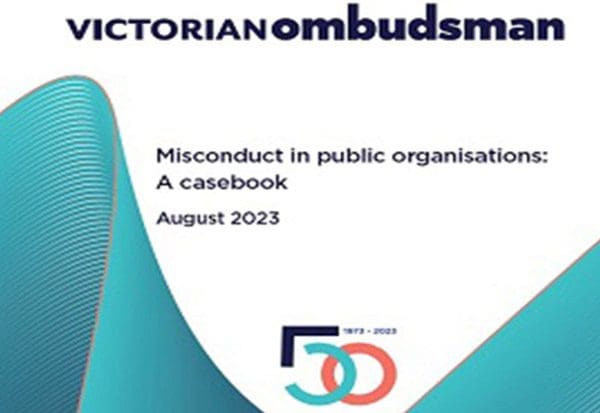Almost 355,000 people are employed in the Victorian State public sector – around 10 percent of the entire Victorian workforce. More than 31,000 others are members of Victorian public sector boards. These people include health, education, transport, corrections, emergency and land management workers. Some of them are unpaid volunteers, for example those on small committees managing local community halls. At the other extreme are executives with substantial salaries, or board members leading organisations responsible for billions of public dollars annually.
While these people engage in a wide range of jobs in varied circumstances, there is a consistent set of expectations about their behaviour. The Public Administration Act 2004 (Vic) states that State public officials must act in a manner that is consistent with the public sector values of responsiveness, integrity, impartiality, accountability, respect and leadership.
This legislation is supported by the Code of Conduct for Victorian Public Sector Employees (‘VPS Code of Conduct’), the Code of Conduct for Directors of Victorian Public Entities and the Code of Conduct for Victorian Public Sector Employees of Special Bodies, which explain how State public officials should demonstrate these values.
The 79 councils in local government in Victoria also employ tens of thousands of staff and have hundreds of elected councillors. The local government sector is not covered by the Public Administration Act, but has its own conduct frameworks based on the Local Government Act 2020 (Vic).
Some people working in public roles, including some private contractors engaged by public organisations, may be subject to the same, or other conduct requirements set out in sectorspecific legislation and codes of conduct, such as Victoria’s Code of conduct for disability service workers or the Victorian Teaching Profession’s Code of Conduct.


